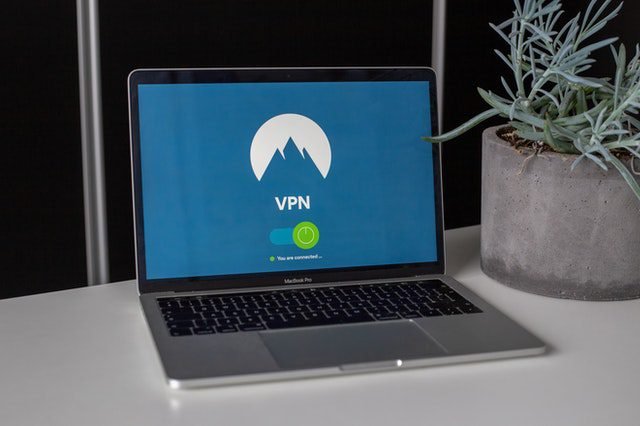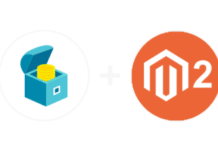Last Updated on January 10, 2026 by Rida Gul
Browsing the internet may be fun, but landing head-first into full-blown legal trouble? Doesn’t sound all that flattering. This is why before using a Canada VPN to access a blocked site or even to give your online privacy a helping hand simply, it’s essential to know what the country says about using them and also clear that are VPNs legal?
Imagine spending a whole night downloading a season you’ve been looking forward to watching using a VPN, only to be woken up by the local police and being pulled in for questioning. Not a pretty sight, right?
To open the discussion about VPNs in Canada, we’ll have to look at how the conversation goes around VPNs, in general. If you don’t know how a VPN works, it works by letting you connect to the internet through a remote and secure server, by proxy.
This way, your IP address is fully masked, and you’re virtually anonymous in the online world. While this does have incredible security benefits because it reduces the chances of your device getting hacked into and your data stolen, it also prevents government bodies from tracking you. Which is where things start to get a little bit gray.
This anonymity factor has also encouraged many people to misuse VPN tools, which further blurs the lines between what’s legal and what’s not when it comes to using a VPN. There are certain countries like the USA where VPNs are legal. Then there are countries like the UAE and China where the use of VPNs is controlled and regulated by the government and finally there are places like Iraq, Belarus, and North Korea where VPNs are completely banned.
Since many areas of the world fall into a very black-and-white area on the topic of VPNs, it’s important to tread carefully and explore the debate deeper to come to a proper conclusion.
Table of Contents
So, where does Canada lie on the VPN issue?
It’s no secret that Canada is one of the most advanced nations globally, especially when it comes to innovation. It is well equipped with the latest tech, and as one of the biggest supporters of growth and inventiveness, Canada is a country that can make an excellent case for either side of VPN usage.
Before we discuss Canada’s stance on VPNs, it is also important to consider that Canada is a part of the Five Eyes Alliance, which means that Canadian citizens are subject to governments and foreign bodies keeping an eye on their online activities. That being said, you can also rest assured that online censorship isn’t a big deal in Canada, though still, some websites and content pieces may be subject to geo-blocking due to specific reasons.
As a result, many Canadian citizens regularly use Virtual Private Networks (or VPNs) to bypass these barriers. Now, let’s move on to the more pressing question of “are VPNs legal in Canada?”
Are VPNs legal in Canada?
With a population of 36 million people, 96% are internet users, making Canada one of the countries with the higher internet penetration rates. At this rate, it would hardly make sense to make one of the most robust online security tools illegal.
So yes, VPNs are completely legal in Canada. They have not been banned or outlawed by the government as far as we know. As far as this goes, it means that you won’t be landing into any legal trouble if you use a VPN. However, that is not the complete picture.
It is essential to know and understand that if you are using a VPN to get away with accessing illegal content or partaking in illegal activities, you will legally be held responsible for your actions. As citizens, we must remember that anything illegal without a VPN remains illegal even while using a VPN.
Another critical factor in VPN usage is that it violates the terms of use of some of the most prominent streaming services like Netflix, Amazon Prime, and Hulu.
These websites use advanced technologies that can detect if a user is taking help from a VPN service to bypass geo-barriers. If these platforms detect VPN usage, your account could end up getting blocked. Fortunately, however, there are specific streaming VPNs you can use that are built to help you get past these barriers undetected.
Reasons why Canadians love using VPNs
Similar to the case with most western countries, data privacy has become a significant issue. As technology advanced, so do ways to exploit and its users. This means that the need for a robust and efficient security system is growing by the day.
Fortunately, VPNs make it harder for anyone to break into your data since your IP address is masked, and you’re completely anonymous online while using one. Apart from that, a VPN also makes sure that your communication with the internet is fully encrypted, so even if a snooper hacker manages to hack into your browsing activities, they won’t be able to make out what information is being exchanged.
VPNs also offer other advanced security features like a no-logs policy, which means that none of your data will be saved or tracked by the application itself since the users are completely anonymous. This means that it’s almost impossible to track an individual’s online activities when they are using a VPN.
Furthermore, in some cases, VPNs can also be used to set up blocks so that certain users will not access certain areas of the internet to make it easier to adhere to the rules and policies of an institution. For example, in a school, a VPN can be used to make sure that students can explore the internet more productively by blocking access to social media or streaming platforms.
Now that you know where Canada stands on the issue of VPNs make sure you’re following the laws when you’re using one!
The Legality of VPNs in Canada: Navigating Online Privacy and Access
Browsing the internet may be fun, but landing head-first into full-blown legal trouble? Doesn’t sound all that flattering. This is why before using a Canada VPN to access a blocked site or even to give your online privacy a helping hand simply, it’s essential to know what the country says about using them and also clear that are VPNs legal?
Imagine spending a whole night downloading a season you’ve been looking forward to watching using a VPN, only to be woken up by the local police and being pulled in for questioning. Not a pretty sight, right?
To open the discussion about VPNs in Canada, we’ll have to look at how the conversation goes around VPNs, in general. If you don’t know how a VPN works, it works by letting you connect to the internet through a remote and secure server, by proxy.
This way, your IP address is fully masked, and you’re virtually anonymous in the online world. While this does have incredible security benefits because it reduces the chances of your device getting hacked into and your data stolen, it also prevents government bodies from tracking you. Which is where things start to get a little bit gray.
This anonymity factor has also encouraged many people to misuse VPN tools, which further blurs the lines between what’s legal and what’s not when it comes to using a VPN. There are certain countries like the USA where VPNs are legal. Then there are countries like the UAE and China where the use of VPNs is controlled and regulated by the government and finally there are places like Iraq, Belarus, and North Korea where VPNs are completely banned.
Since many areas of the world fall into a very black-and-white area on the topic of VPNs, it’s important to tread carefully and explore the debate deeper to come to a proper conclusion.
Table of Contents
So, where does Canada lie on the VPN issue? Are VPNs legal in Canada? Reasons why Canadians love using VPNs So, where does Canada lie on the VPN issue? It’s no secret that Canada is one of the most advanced nations globally, especially when it comes to innovation. It is well equipped with the latest tech, and as one of the biggest supporters of growth and inventiveness, Canada is a country that can make an excellent case for either side of VPN usage.
Before we discuss Canada’s stance on VPNs, it is also important to consider that Canada is a part of the Five Eyes Alliance, which means that Canadian citizens are subject to governments and foreign bodies keeping an eye on their online activities. That being said, you can also rest assured that online censorship isn’t a big deal in Canada, though still, some websites and content pieces may be subject to geo-blocking due to specific reasons.
As a result, many Canadian citizens regularly use Virtual Private Networks (or VPNs) to bypass these barriers. Now, let’s move on to the more pressing question of “are VPNs legal in Canada?”
Are VPNs legal in Canada? With a population of 36 million people, 96% are internet users, making Canada one of the countries with the higher internet penetration rates. At this rate, it would hardly make sense to make one of the most robust online security tools illegal.
So yes, VPNs are completely legal in Canada. They have not been banned or outlawed by the government as far as we know. As far as this goes, it means that you won’t be landing into any legal trouble if you use a VPN. However, that is not the complete picture.
It is essential to know and understand that if you are using a VPN to get away with accessing illegal content or partaking in illegal activities, you will legally be held responsible for your actions. As citizens, we must remember that anything illegal without a VPN remains illegal even while using a VPN.
Another critical factor in VPN usage is that it violates the terms of use of some of the most prominent streaming services like Netflix, Amazon Prime, and Hulu.
These websites use advanced technologies that can detect if a user is taking help from a VPN service to bypass geo-barriers. If these platforms detect VPN usage, your account could end up getting blocked. Fortunately, however, there are specific streaming VPNs you can use that are built to help you get past these barriers undetected.
Reasons why Canadians love using VPNs Similar to the case with most western countries, data privacy has become a significant issue. As technology advanced, so do ways to exploit and its users. This means that the need for a robust and efficient security system is growing by the day.
Fortunately, VPNs make it harder for anyone to break into your data since your IP address is masked, and you’re completely anonymous online while using one. Apart from that, a VPN also makes sure that your communication with the internet is fully encrypted, so even if a snooper hacker manages to hack into your browsing activities, they won’t be able to make out what information is being exchanged.
VPNs also offer other advanced security features like a no-logs policy, which means that none of your data will be saved or tracked by the application itself since the users are completely anonymous. This means that it’s almost impossible to track an individual’s online activities when they are using a VPN.
Furthermore, in some cases, VPNs can also be used to set up blocks so that certain users will not access certain areas of the internet to make it easier to adhere to the rules and policies of an institution. For example, in a school, a VPN can be used to make sure that students can explore the internet more productively by blocking access to social media or streaming platforms.
Now that you know where Canada stands on the issue of VPNs make sure you’re following the laws when you’re using one!
Apart from that, if you are interested to know about What Does Scrum Mean by Cross then visit our Technology category.



























